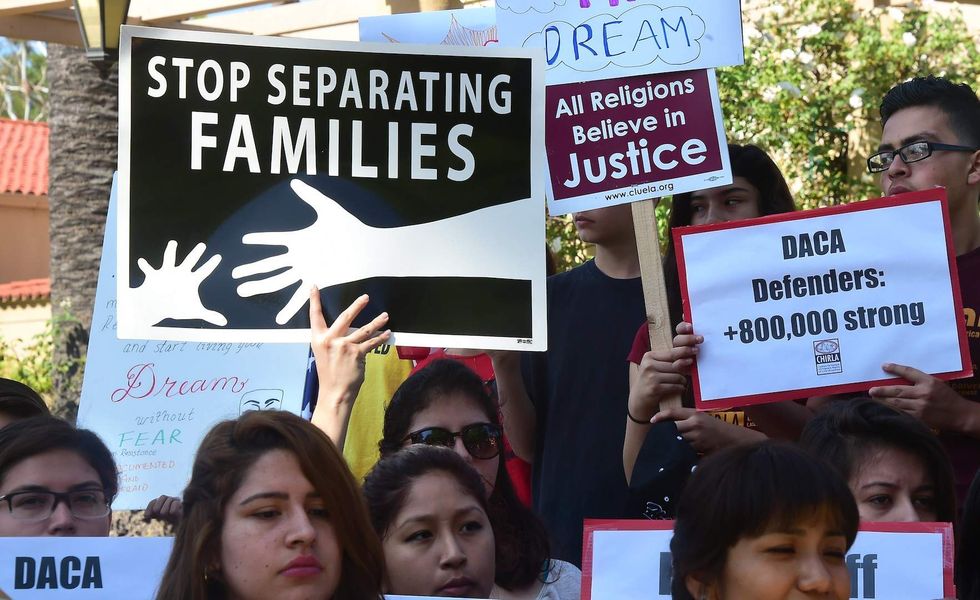
President Donald Trump is likely to end DACA, an Obama policy protecting young undocumented immigrants from deportation. (Frederic J. Brown/AFP/Getty Images)

Several government officials confirmed Friday that President Donald Trump is likely to end Deferred Action for Childhood Arrivals, commonly known as DACA, a program that allowed people who came to the United States illegally as children to remain in the country.
DACA began in 2012 under the Barack Obama administration. Under the program, young people who arrived in the U.S. by 2007 are allowed to remain in the country, as long as they were brought in by their parents before they were 16 years old and haven't committed any serious crimes. This applies both to people who arrived illegally or who overstayed their visas.
More than 800,000 people are covered by DACA. It is estimated that 200,000 people have applied for DACA status under the Trump administration.
The administration is said to be weighing whether DACA will be immediately revoked or whether it will be gradually phased out, according to NBC News. White House Press Secretary Sarah Huckabee Sanders told reporters the program "continues to be under review" as of Friday.
Trump has been vocally in opposition to DACA since before he was elected, even going so far as to promise to end the program on day one of his administration.
He has attacked the program as unconstitutional, on the basis that Congress, not the president, has the authority to determine who may legally enter and reside in the U.S.
Trump appeared to soften his stance against young undocumented immigrants in April, however, when he told the Associated Press that those shielded from deportation could "rest easy" because his priority was deporting criminals.
The attorneys general from ten states announced plans to sue the Trump administration if he did not keep his promise to end DACA by September 5.
Like most things; split. Obviously, immigrant rights groups such as United We Dream and others will strongly oppose it. DACA advocates don't believe immigrants should be punished for having been brought to the U.S. by their parents when they were children.
Opponents of DACA aren't necessarily against exploring ways undocumented immigrants can stay in the country, but do believe Obama vastly overreached his authority by instituting this program without congressional approval.
Senator Lindsay Graham, for example, believes DACA is unconstitutional, but does support the DREAM Act, a bill that would give U.S. citizenship to illegal aliens who came here as children.